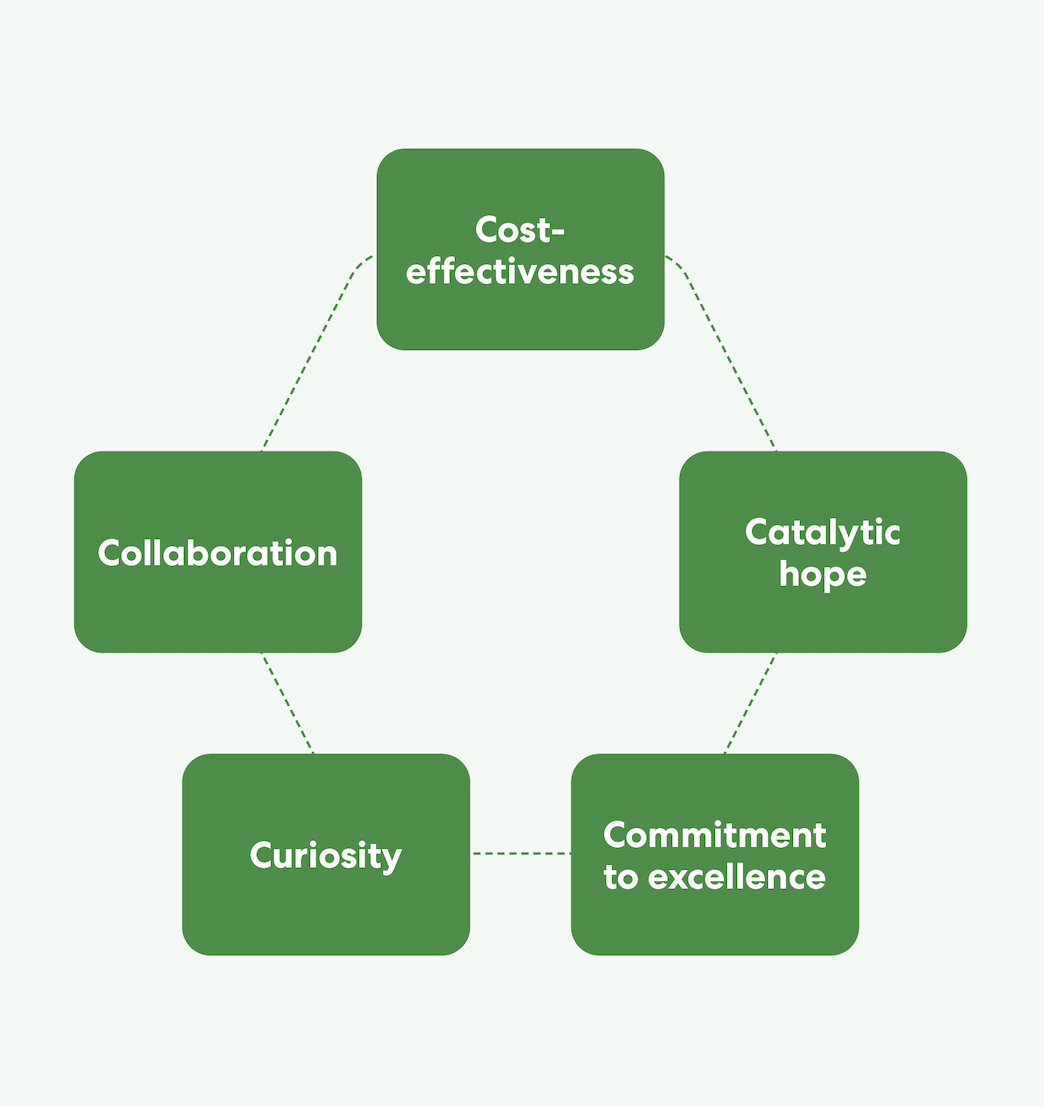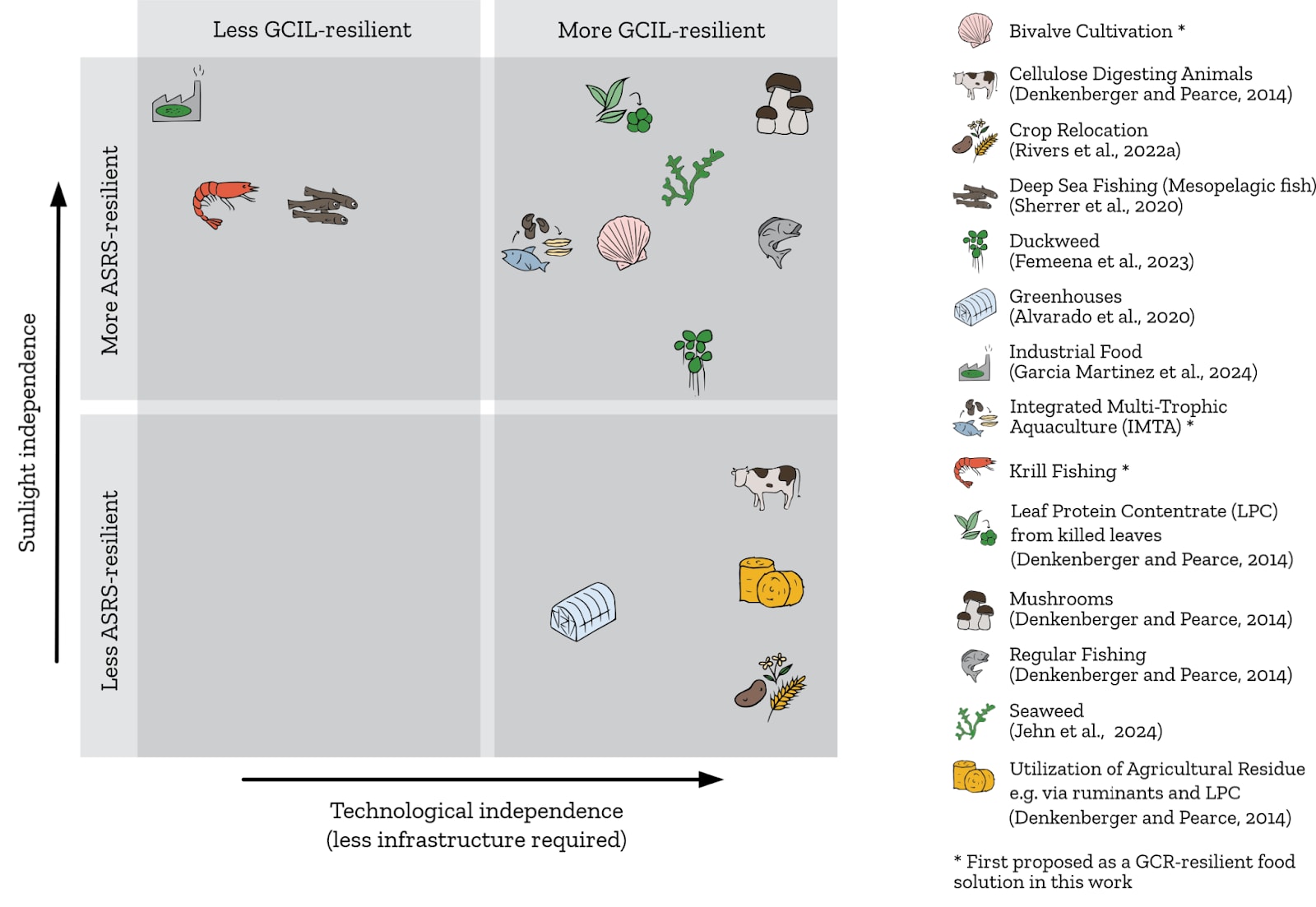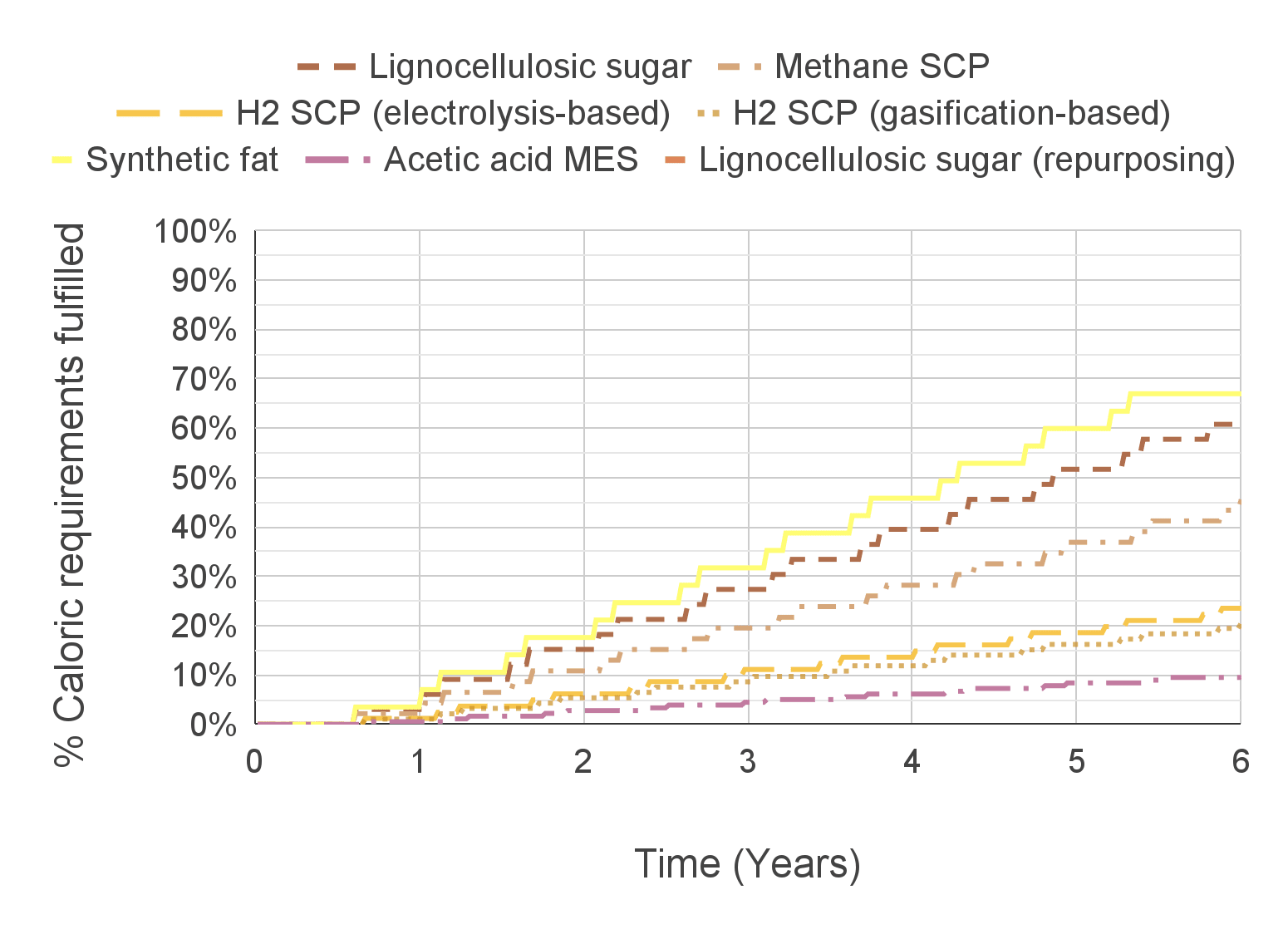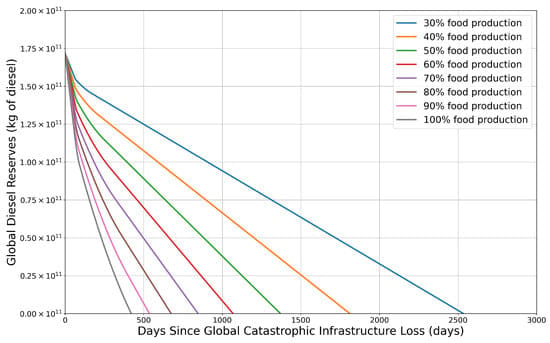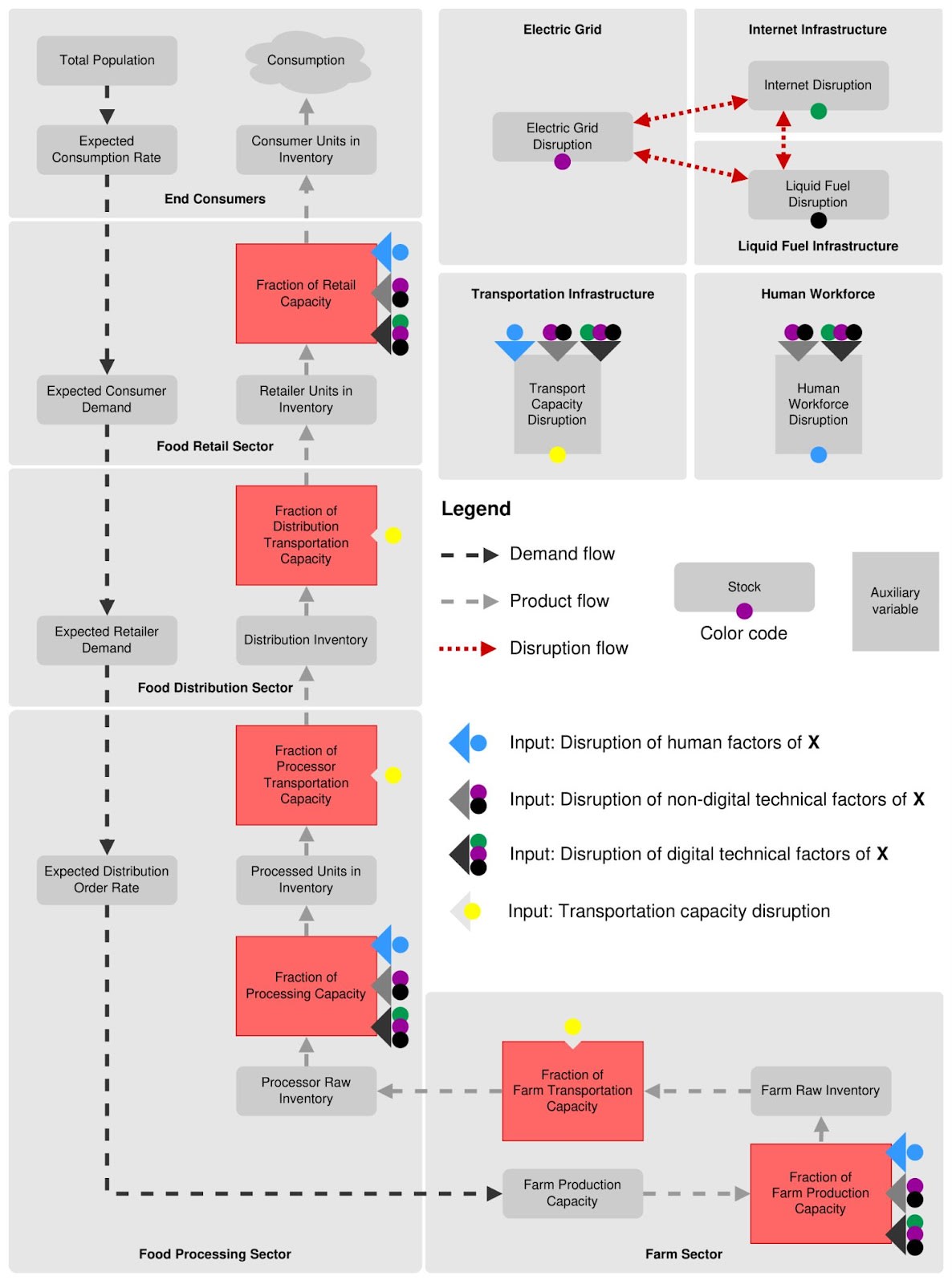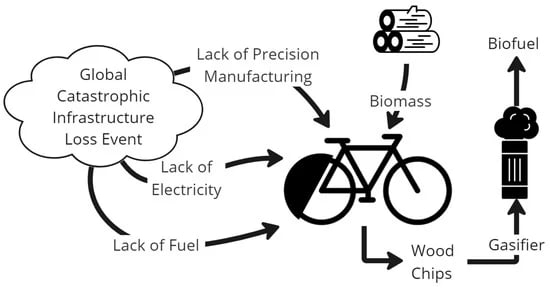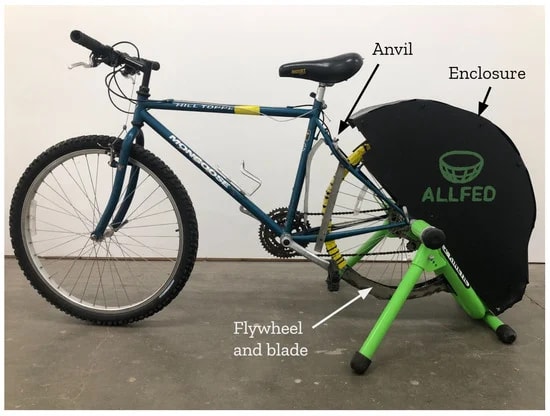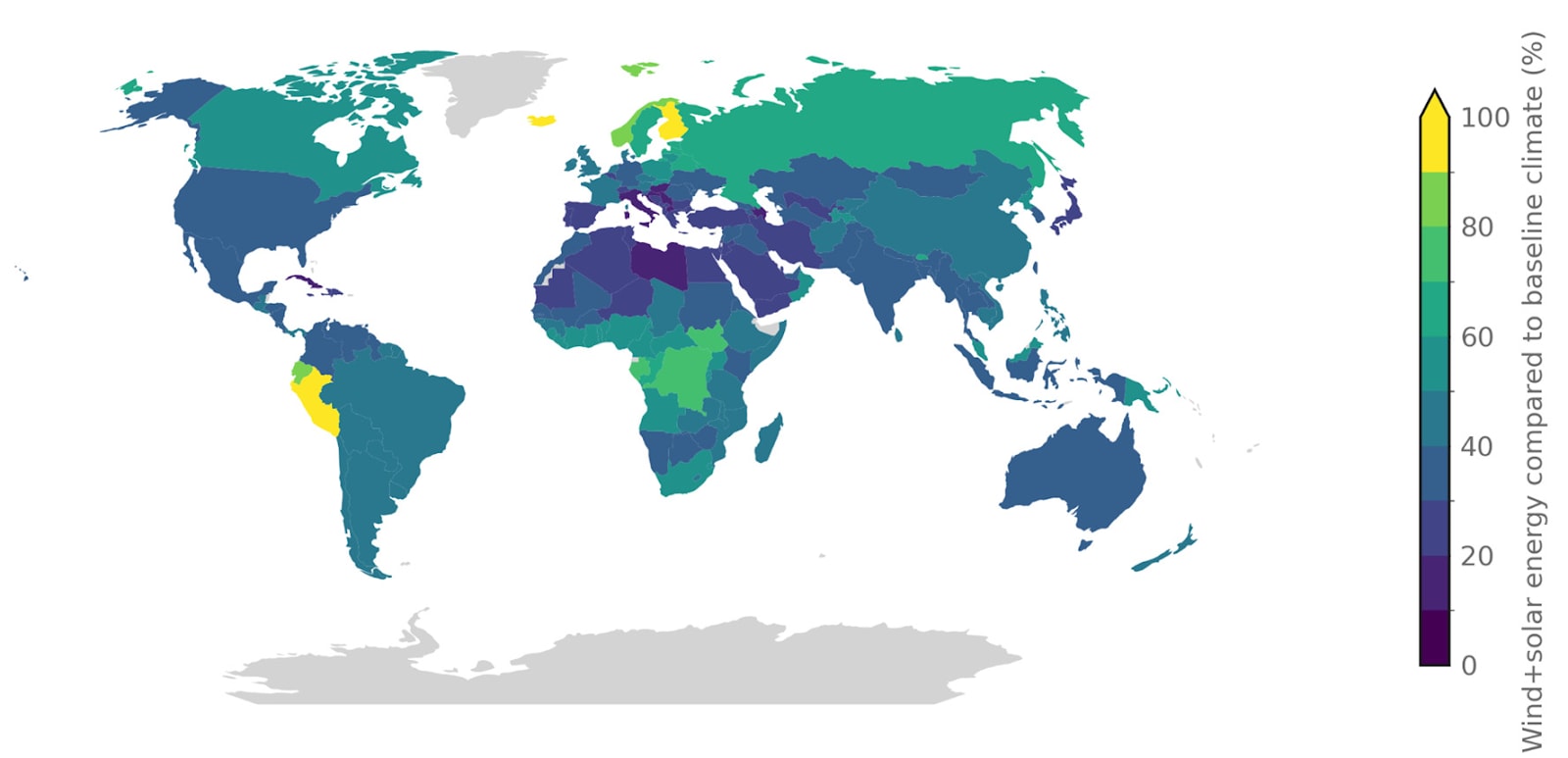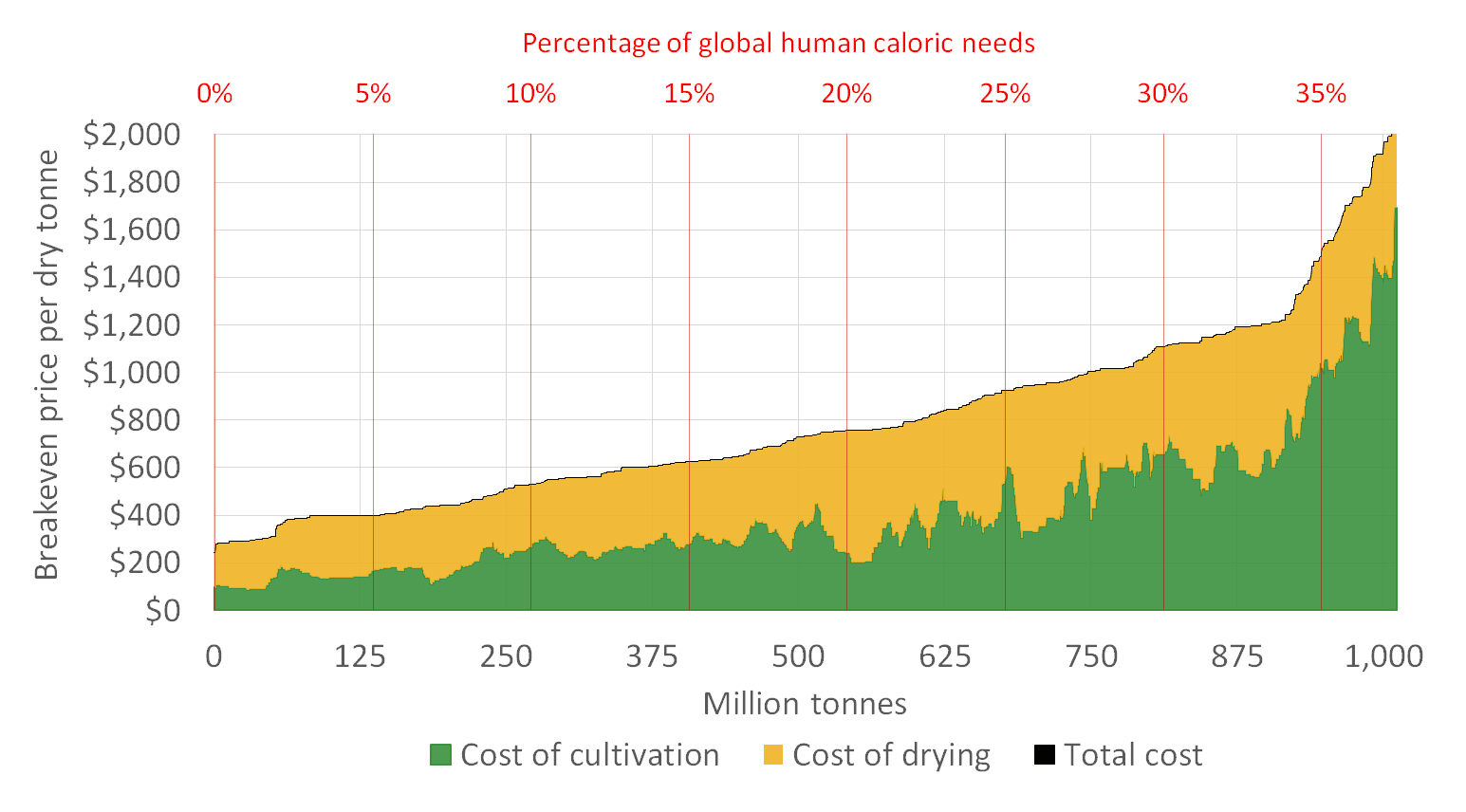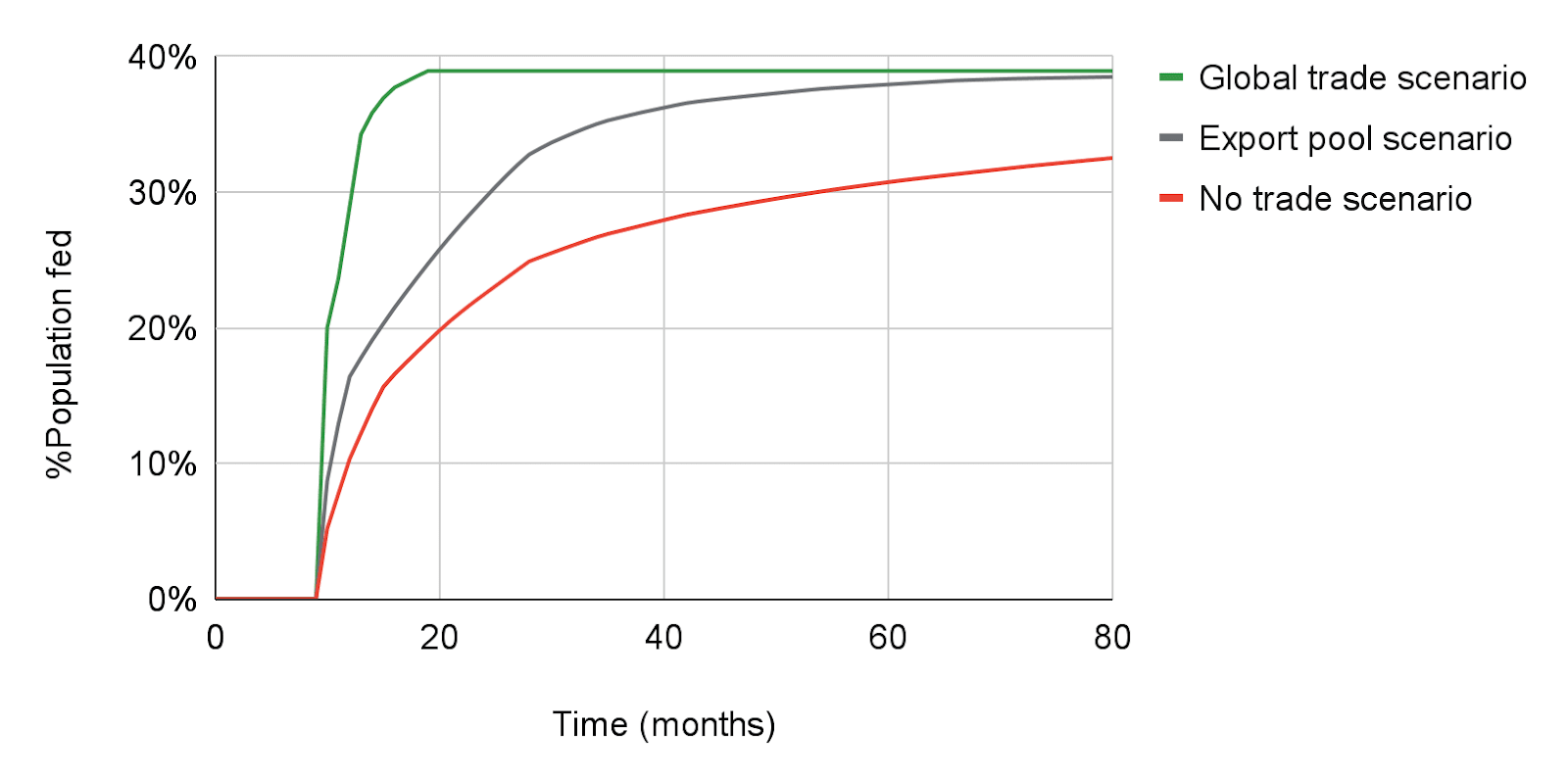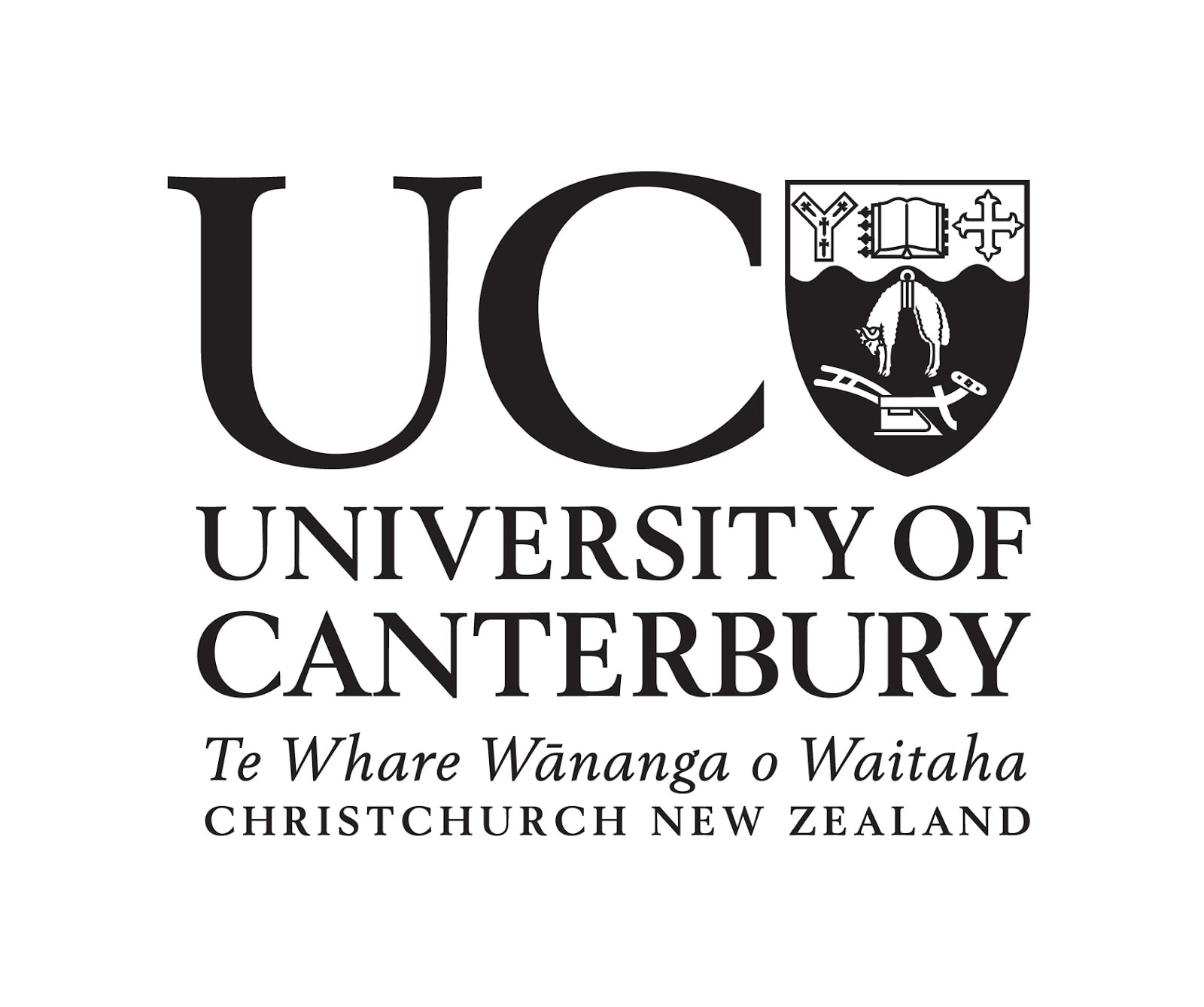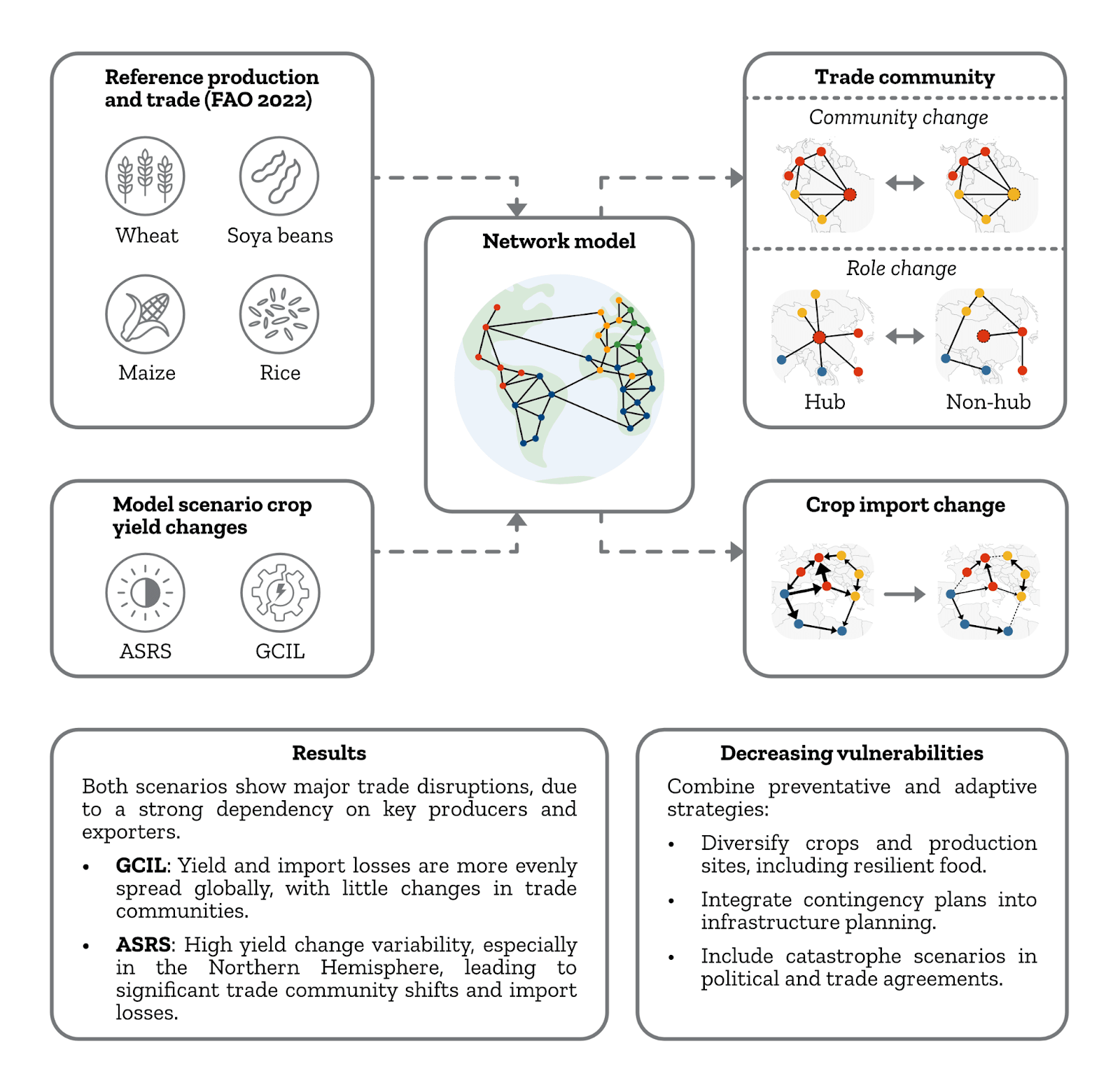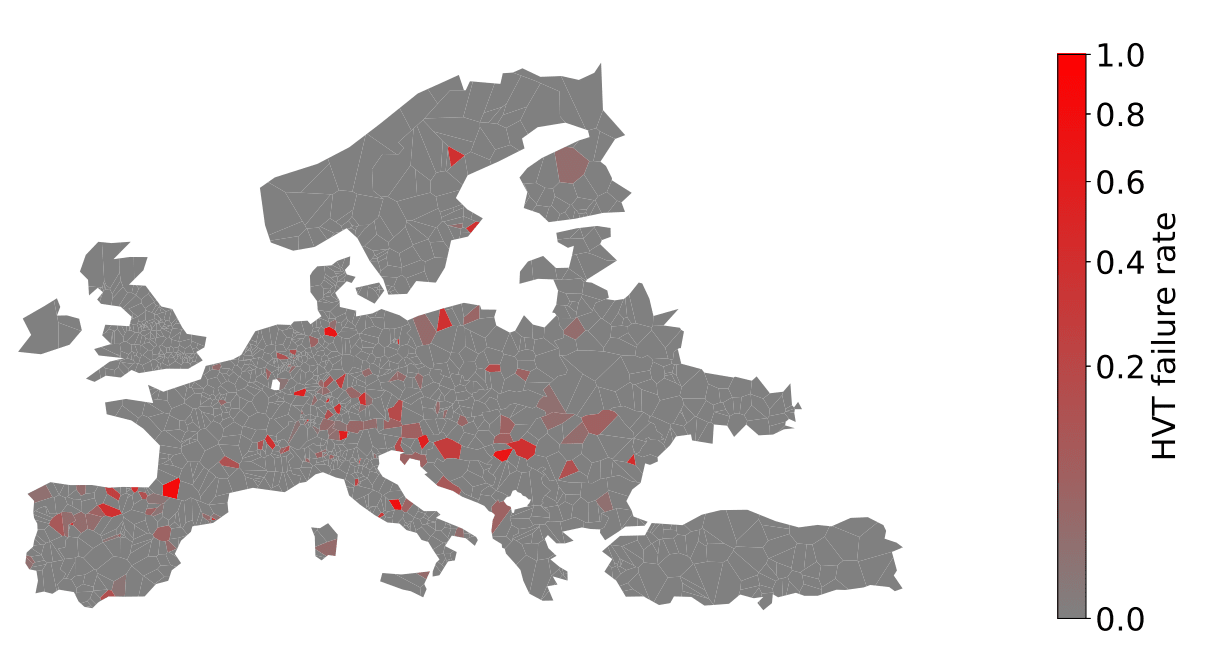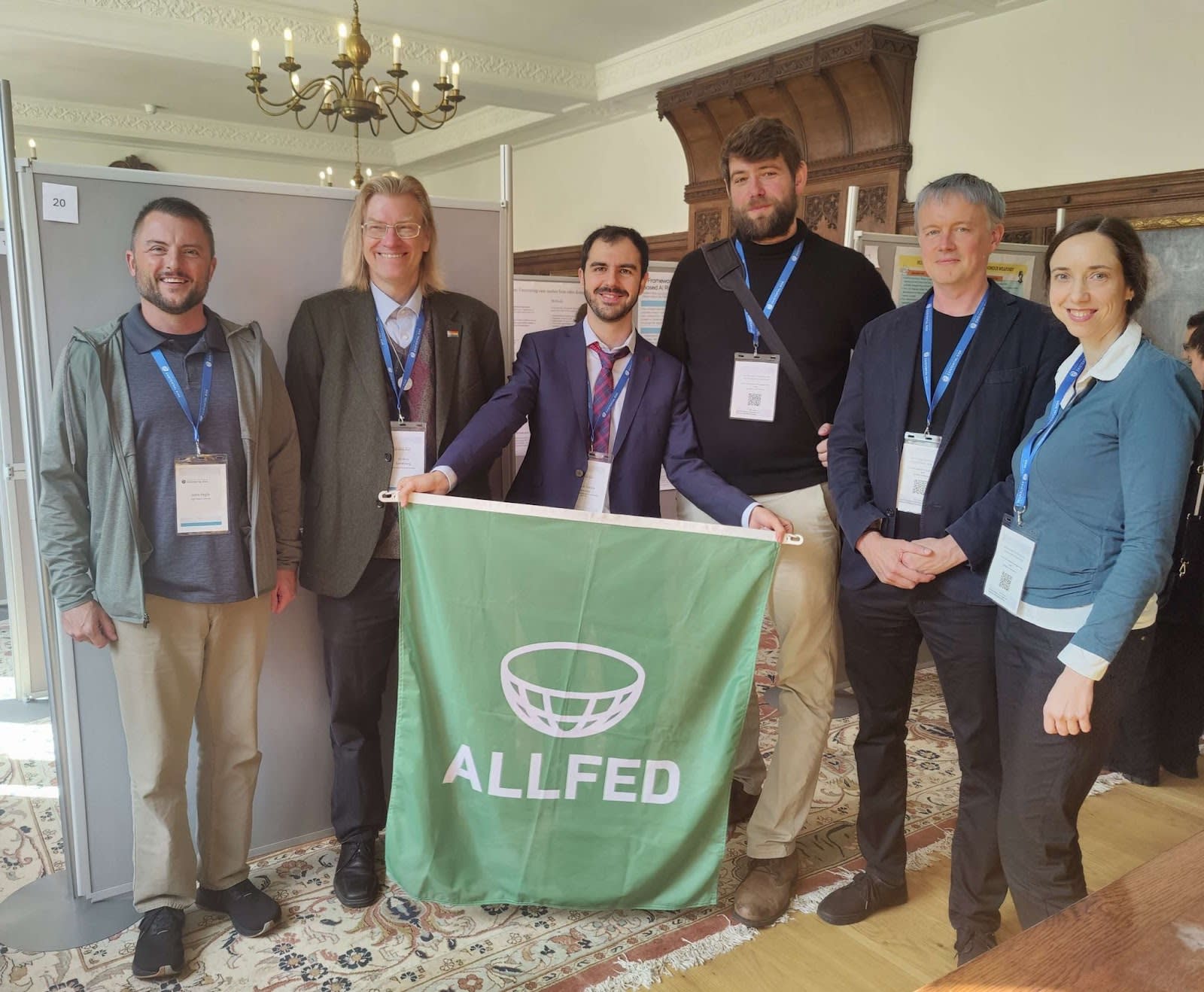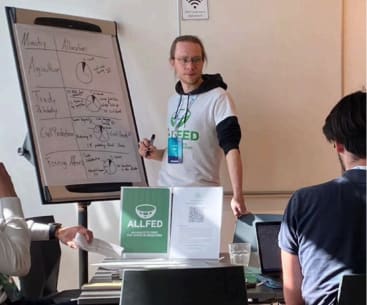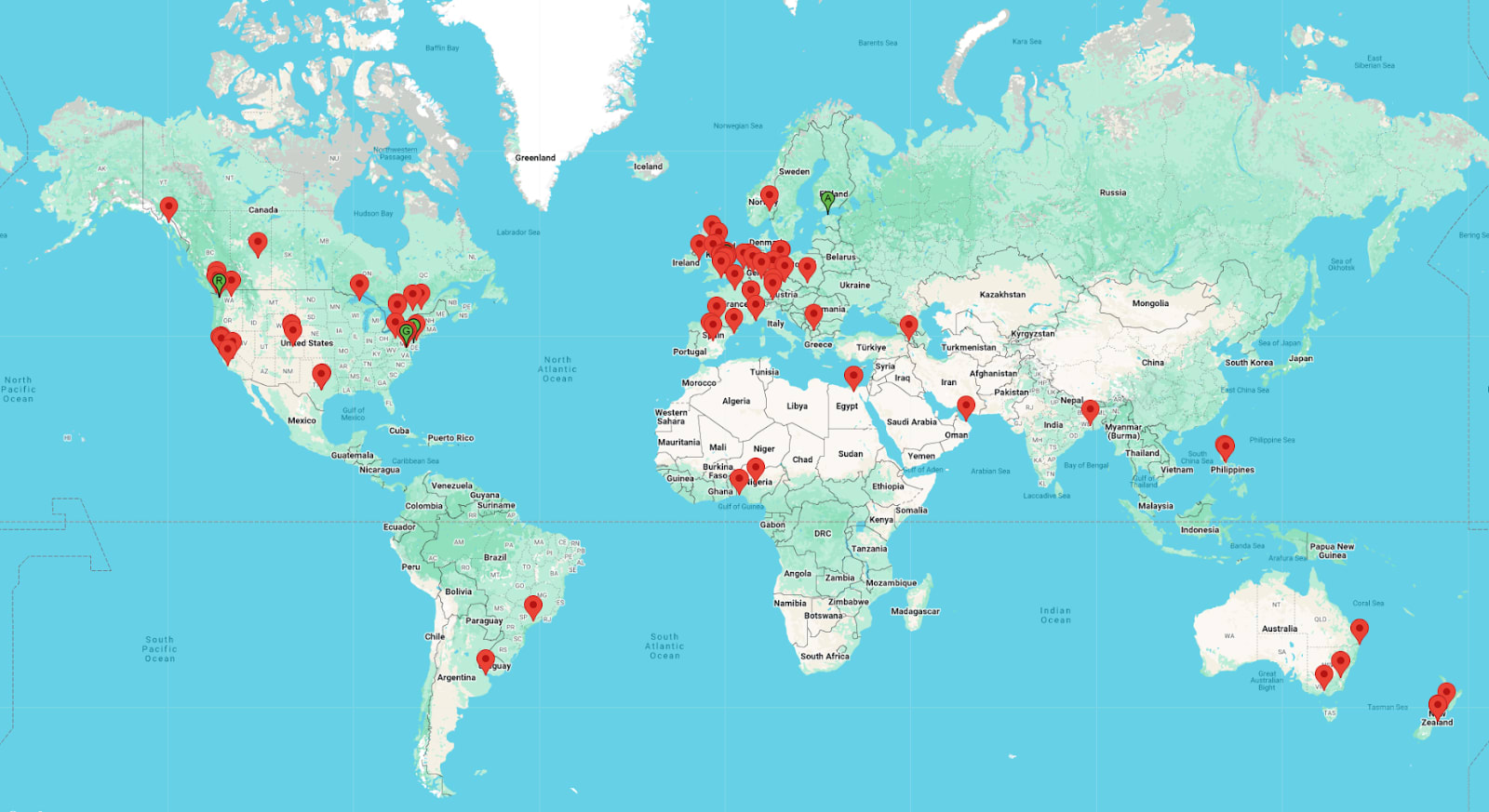Executive Summary
Welcome to ALLFED’s 2024 Highlights, our annual update on what Alliance to Feed the Earth in Disasters has been up to this year. From producing fifteen scientific papers on global catastrophes to forming the first blueprint for an Extreme Pandemic Resilience Plan for Vital Industry, to being featured in over 90 media articles—it’s been a busy, productive year of impact.
There is much more we could do to help build a resilient future. Thanks to a dedicated anonymous donor couple, up until Giving Tuesday, December 3, 2024, we can match 10% of all individual gifts made up to $5,000, with a special campaign target of $50,000. Please consider donating to us via our website this giving season and see your impact boosted as part of this time-limited offer.
Give nowWithin These 2024 Highlights:
- Our prolific year in research has seen several papers published in top food science journals, spanning topics from global food production analyses to open-source technology design. Each study has strengthened the field of food resilience research for global catastrophic risks, with more in progress.
- A new strategic vision: In our second full year as a registered 501(c)(3), we have refined ALLFED’s vision, mission, and values, culminating in a forward-looking strategy for 2025-2026. Our mission has been refined as: “helping build resilience to global catastrophic food system failure,” with a clear commitment to research-driven resilience and preparedness in policy.
- Our policy work has grown significantly through strategic collaborations and advisory roles, ranging from UK pandemic resilience planning to disaster preparedness efforts with the Swedish Presidency of the Nordic Council.
- We have expanded our reach and awareness, with ALLFED having been featured in at least 90 media pieces from January to September 2024, including in the European Leadership Network’s OK! Doomer podcast, Advanced Science News, and National Geographic (Hungarian edition). Our paper on seaweed as a resilient food solution has attracted notable media attention at the start of this year, with 73 mentions, 12,000 views, and an op-ed published in El País - Planeta Futuro.
- We have strengthened governance, welcoming new board members and advisors Kathryn Mecrow-Flynn, Kyle Gracey, Allen Hundley, and John M. Fogle who bring fresh insights and expertise to ALLFED’s Board of Advisors. Additionally, Robin D. Hanson, a long-standing advisor to ALLFED, has joined the ALLFED Institute as a Board Member. This year has marked a milestone for the ALLFED Institute with our first independent 501(c)(3) report, reinforcing our commitment to transparency and accountability.
This has been a quieter year for fundraising for ALLFED. We are deeply grateful to all our supporters, including the Survival and Flourishing Fund, which has provided the majority of our funding for years. However, this year, we received around one-eighth of the average funding we’ve received from the Survival and Flourishing Fund over the previous three years. While we’re immensely appreciative of their continued support, this shift shortens our runway and emphasizes the need to seek additional funding sources to sustain and expand our impact. We currently have the ALLFED 10% Gift Match Opportunity open until December 3, 2024. This match opportunity offers supporters a chance to amplify their impact. Can you help us?
You can find out more about the Match Campaign and our work in person this coming weekend if you are in Australia. Meet us in Sydney for EAGx Australasia and say hello! If you would like to book a meeting with the team contact us.
We hope you enjoy these ALLFED’s 2024 Highlights (and you can catch up on last year’s 2023 Highlights here).
Strategy
In our second full year as a registered 501(c)(3), we have dedicated significant time to refining ALLFED's vision, mission, and future remit, culminating in what will form a new two-year strategy for 2025–2026; this will be shared publicly in 2025.
While our vision, "feeding everyone, no matter what", has remained unchanged, our mission has now been sharpened to center on "helping build resilience to global catastrophic food system failure."
We have also strengthened our remit to emphasize the role of our research in driving resilience and preparedness in policymaking, and our commitment to working with governments and international bodies.
For the first time in our history, we have formalized five organizational values that underpin our approach and guide our work. Over the next two years, we have committed to integrating these values into our strategic efforts and actions, strengthening decision-making, collaboration, and trust with our partners and stakeholders, and ensuring that our work remains aligned with our mission.
Our Core Values
Cost-effectiveness: A focus on prioritizing and maximizing impact, ensuring resources are allocated where they can do the most good.
Catalytic hope: The drive to develop solutions grounded in academic rigor and pragmatism, while maintaining a hopeful outlook and a belief in humanity's potential.
Collaboration: A commitment to working with a broad range of actors, including other NGOs, governments, industry, think tanks, and academia, to develop resilient food solutions for global catastrophes.
Curiosity: A genuine desire for openness and truth-seeking through a 'Scout Mindset,' continuously learning and seeking new knowledge while maintaining epistemic integrity.
Commitment to excellence: A dedication to professionalism and ambitious solutions; honestly confronting challenges with epistemic humility, recognizing the limits of our knowledge while remaining optimistic about the potential for scientific breakthroughs.
Figure 1. ALLFED’s Core Values.
Research
In 2024, ALLFED’s Research Team produced fifteen academic papers, three of which have been featured in top food science journals. Topics have ranged from global food production analyses to open-source designs, each contributing to resilience research for catastrophic risks. Our papers include a study on industrial methods to produce food without farming, the impact of electricity loss on food supply chains, and a review of food supply interventions for global catastrophic food shocks. These studies have underpinned our policy efforts, advocacy, and partnerships, while also inspiring further research into these essential yet often overlooked challenges.
Though published nearly a decade ago, Feeding Everyone No Matter What, by ALLFED Co-Founder David Denkenberger and Joshua Pearce, has reached a new milestone this year with over 100 citations, underscoring its lasting influence on global food security research. This foundational work continues to inspire and shape solutions to critical challenges, proving its relevance and impact across the years.
Our Published, Peer-Reviewed Research
Juan B. García Martínez, Jeffray Behr, Joshua M. Pearce, and David C. Denkenberger. Critical Reviews in Food Science and Nutrition, in press.
This study, marking ten years since the field-pioneering Feeding Everyone No Matter What by David Denkenberger and Joshua Pearce, has reviewed strategies to build resilience against global catastrophic food system failures. The authors have assessed methods like crop relocation and seaweed farming, alongside novel scalable resilient food solutions for crises such as nuclear war or volcanic eruptions. Emphasizing international trade and crop prioritization, the paper has outlined a future research agenda on policy, production ramp-up, and trials, recommending national plans and investments in resilient food strategies to safeguard against global food system collapse.
Figure 2. Representation of the space of resilient foods in the context of an abrupt sunlight reduction scenario (ASRS) and global catastrophic infrastructure loss (GCIL), in terms of how much their production yields would be affected. Placements are approximate, showing the simplest method for each. Note: this graphic does not include fundamental considerations for the potential of these methods for resilient food production, such as production cost, capital intensity, or speed of mass deployment.
Juan B. García Martínez, Jeffray Behr, and David C. Denkenberger. Trends in Food Science & Technology, August 2024.
This paper has investigated non-agricultural food production methods to provide essential nutrients during agricultural collapse. It demonstrates how industrial technologies, such as producing proteins from natural gas or sugar from wood, can supply vast amounts of food independently of traditional farming.
Figure 3. Ramp-up speed of non-agricultural food production sources using 24/7 construction after a global agricultural catastrophe.
Morgan Rivers, Michael Hinge, Kevin Rassool, Simon Blouin, Florian U. Jehn, Juan B. García Martínez, Vasco Amaral Grilo, Victor Jaeck, Ross J. Tieman, James Mulhall, Talib E. Butt, and David C. Denkenberger. Global Food Security, September 2024.
This study has explored strategies to sustain food production during severe sunlight reduction events causing catastrophic food system failures. Using a nuclear winter model, the authors have examined food conservation, agricultural interventions, and resilient foods like seaweed and single-cell protein. Without trade or adaptation, global famine is likely; however, resilient foods and conservation could mitigate this risk, while global trade would further stabilize supplies—emphasizing the need for resilient food systems and international cooperation.
David Nelson, Alexey Turchin, and David Denkenberger. Biomass, June 2024.
This project has examined wood gasification as a safeguard for supply chain resilience in catastrophic scenarios. It has highlighted the potential role of wood gasification in maintaining food production, and crucial transport infrastructure (e.g. food, water) to meet basic needs in the event of critical infrastructure collapse.
Figure 4. A sensitivity analysis demonstrating the effect of varying the food consumption on the diesel reserves.
Assessing the Impact of Catastrophic Electricity Loss on the Food Supply Chain
Simon Blouin, Alexander Herwix, Morgan Rivers, Ross Tieman, and David Denkenberger. International Journal of Disaster Risk Science, August 2024.
This paper has presented a system-dynamics model that assesses how catastrophic electricity loss from EMPs, cyberattacks, and solar storms could disrupt the food supply chain, leading to severe shortages. As the first attempt to quantify how food availability declines with prolonged power outages, the authors have made the open-source model publicly available for application to other catastrophic scenarios, such as extreme solar storms or high-lethality pandemics.
“This paper is a good example of exploratory modeling in an area that is both neglected and potentially important … a particularly ambitious, though important, project as there are plausible scenarios that could result in major protracted electrical failures.”
—Anonymous expert reviewer, April 2024.
Figure 5. Logic of the system-dynamics model used in the paper.
Wood Chipper Design for Biofuel Production in a Global Catastrophic Loss of Infrastructure Scenario
Henry Vennard, Joshua M. Pearce, and David Denkenberger. Hardware, June 2024.
This research has investigated the potential of a bicycle-powered wood chipper design for biofuel production, offering an efficient solution for fuel provision in the aftermath of global infrastructure collapse. The accessible design aims to support survival and improve chances for recovery during times of widespread disruption. The wood chips would be gasified to power vehicles in the food supply chain such as tractors and distribution trucks.
Figure 6. Diagram of a wood chipper for biofuel production in a Global Catastrophic Loss of Infrastructure (GCIL) scenario.
Figure 7. A human-powered bicycle wood chipper prototype, with major components labeled.
Can Foraging for Earthworms Significantly Reduce Global Famine in a Catastrophe?
Henry Miller, James Mulhall, Lou Aino Pfau, Rachel Palm, and David C. Denkenberger. Biomass, July 2024.
This study has examined the feasibility and cost-effectiveness of foraging earthworms to reduce global famine in an Abrupt Sunlight Reduction Scenario (ASRS), such as a nuclear winter, with or without global infrastructure loss. The findings have highlighted their limited viability due to low scalability and high cost.
Seaweed Rope Testing: Open-Source Flexible Material Tensile Testing Apparatus
Morgan C. Woods, Nathan Nauta, and Joshua M. Pearce. Hardware, February 2024.
The paper has presented an open-source design for low-cost tensile strength testing hardware to evaluate alternative rope materials for seaweed farming, especially in an emergency such as an Abrupt Sunlight Reduction Scenario (ASRS). This is relevant for overcoming rope production limitations when rapidly scaling seaweed production. The design has been tested on denim, demonstrating sufficient strength and offering a significantly cheaper alternative to commercial testing solutions.
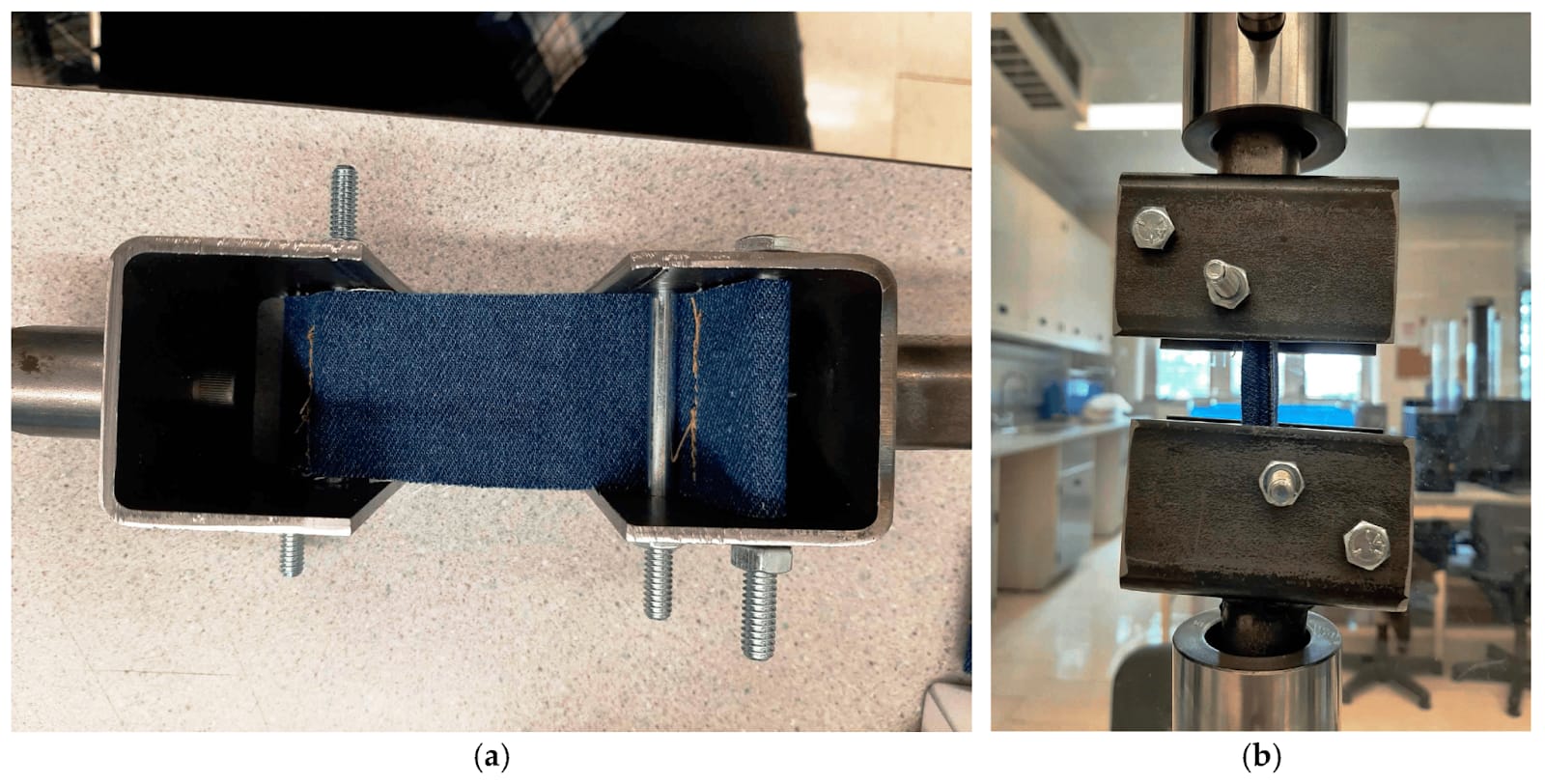
The Impact of Abrupt Sunlight Reduction Scenarios on Renewable Energy Production
Ashitosh Rajesh Varne, Simon Blouin, Baxter Lorenzo McIntosh Williams, and David Denkenberger. Energies, October 2024.
This paper has examined the impact of an Abrupt Sunlight Reduction Scenario (ASRS), such as a nuclear or volcanic winter, on global energy systems. The findings indicate that the sum of wind and solar output would drop by 59% in the first year after an ASRS, with recovery taking over a decade. The results have underscored the need for resilient energy sources and international cooperation to meet critical needs like food, water, and heating.
Figure 9. Wind and solar (overall energy) production compared to baseline in the first calendar year after the onset of a severe nuclear winter scenario.
Research Pending Peer Review
Seaweed Cultivation: A Cost-Effective Strategy for Food Production in a Global Catastrophe
Michael Hinge, Vasco Amaral Grilo, Florian U. Jehn, Juan B. García Martínez, Farrah Jasmine Dingal, Michael Roleda, and David Denkenberger.
This study has evaluated seaweed cultivation as a cost-effective food source following a global catastrophe, such as a nuclear winter, where sunlight is drastically reduced, impacting conventional crops. Using seaweed species Gracilaria tikvahiae as a benchmark, the authors have estimated production costs of dry edible seaweed to be under $1,000 per tonne providing 10% of human needs, 10% of animal needs, and a significant fraction of biofuel under these extreme conditions—higher than current prices due to additional capital costs and drying needs. Despite this, seaweed’s resilience and scalability have made it a valuable option for addressing global nutrition through direct consumption or animal feed.
Figure 10. Marginal production costs versus annual output - global total under US$2000 - years 1-7 post 150 Tg nuclear winter.
Expansion of Cropland Area During an Abrupt Sunlight Reduction Scenario
Luisa L. Monteiro, Mike Hinge, Morgan Rivers, Simon Blouin, Jacobus Daniel van der Walt, and David Denkenberger.
This paper has investigated a potential intervention during catastrophes that reduce sunlight and severely impact crop yields. By examining the conversion of approximately 500 million hectares of pasture and second-growth forests into cropland, the authors have explored three land-clearing scenarios: global-equipment-sharing, no-equipment-trade, and export-pool-equipment-trade. This approach, while protecting biodiversity, could mitigate mass starvation and prevent the extinction of species through overhunting. With global trade, up to 40% of human needs could be met through cropland expansion within 18 months.
Figure 11. Monthly global food demand met by the different equipment-trade scenarios smoothed over 12-month periods.
This project was done in collaboration with University of Canterbury.
Food Trade Disruption After Global Catastrophes
Florian U. Jehn, Łukasz G. Gajewski, Johanna Hedlund, Constantin W. Arnscheidt, Lili Xia, Nico Wunderling, and David Denkenberger.
This paper has highlighted the vulnerability of the global food trade system to shocks from catastrophic risks, such as an Abrupt Sunlight Reduction Scenario (ASRS) (e.g., nuclear war) or infrastructure loss (e.g., severe geomagnetic storms or a global pandemic), the former of which could disrupt food imports by up to 100%.
Figure 12. Visual summary of our methodology and results on how to assess changes in food trade after disruption due to global catastrophic risks like nuclear war or geomagnetic storms.
Linto Jose, Milan Raxworthy, Baxter Lorenzo McIntosh Williams, and David Denkenberger.
This project has explored the feasibility of converting household appliances into wood-burning stoves for space heating in the event of Global Catastrophic Infrastructure Loss (GCIL) that disrupts conventional energy supplies. The team has successfully converted an electric oven into a wood-burning stove, generating 5.4 kW of useful heat at 68% efficiency. The findings have demonstrated this method’s viability. Such conversions could be rapidly scaled to address basic heating needs for survival in a global catastrophe, though international cooperation and preparedness would be critical for effective implementation.
Ross J. Tieman, Pedro A. Oliboni, and Simeon Campos.
This study has developed a country-level spatial network Susceptible Infected Removed (SIR) model to assess the early spread of pandemics caused by Emerging Infectious Diseases (EIDs) and lab leaks from high-containment biological laboratories (HCBLs), using global travel data and relative risk measures from potential origin sources. The findings have highlighted high-risk countries and suggest strategic points for targeted mitigation efforts.
Global Transformer Overheating from Geomagnetic Storms
Morgan Rivers, Łukasz G. Gajewski, and David Denkenberger.
This study has examined the risk and severe impacts of Catastrophic Electricity Loss (CEL) on critical infrastructure from geomagnetic storms. Such storms have been shown to induce currents that overheat high-voltage transformers (HVTs), leading to prolonged outages. Using thermal and geoelectric models, the authors have estimated that a severe storm could result in CEL, affecting up to 1% of Europe and North America’s population. The work has underscored the need for resilient power grids, although it concludes that a global catastrophe remains very unlikely.
Figure 13. European substations at risk of electricity loss after a 1-in-10000 year storm. Colour indicates the fraction of HVTs we expect to fail within a given Voronoi tile.
Policy
In 2024, we expanded our policy capabilities and advanced our policy work through strategic collaborations, expert guidance for government resilience planning, and proactive engagement with global security and biosecurity organizations. This year, ALLFED:
- Provided expert input to the UK government on critical supply chain resilience.
- Developed the world’s first blueprint for an extreme pandemic resilience plan for vital industry, aimed at safeguarding essential services during severe pandemics, with recommendations including prioritizing PPE for vital workers, establishing sequestration protocols, and preparing for potential infrastructure collapse.
- Submitted, with Langsikt, a special briefing to the Swedish Presidency of the Nordic Council, via the Office for Strategic Analysis and Coordination of National Security Issues in the Swedish government.
- Partnered with the Oxford Biosecurity Group to investigate vulnerabilities and has developed operational response plans for food, water, energy, and personal protective equipment (PPE) manufacturing during extreme pandemics.
- Developed an updated version of the Resilient Aquaculture and Mariculture Industry Alliance (RAMIA) proposal, advocating for resilient policy solutions. RAIMA is a proposed collaborative initiative aimed at optimizing seaweed production capabilities through strategic industry clustering, and is a first at ALLFED for resilient food-specific policy/industry engagement strategy-building.
- Expanded the Policy Team, bringing in additional expertise that has fueled our efforts to explore new opportunities for engagement with governments and stakeholders.
- Joined forces with the Risk-informed Early Action Partnership (REAP) to strengthen the global response to severe food crises. By focusing on proactive and sustainable strategies, we aim to secure food access for all, regardless of wealth or location.
Of the new partnership, Ben Webster, Head of the REAP Secretariat, said: “We are thrilled to welcome ALLFED to REAP, as their systemic approach to food system resilience will be invaluable towards our shared mission of protecting vulnerable communities from crises. Food security is a critical component of resilience, and by integrating ALLFED’s expertise, we are taking a significant step toward making early action ahead of severe crises the new global norm. This partnership exemplifies the power of collaboration across sectors, demonstrating that through collective effort, we can develop the solutions needed to safeguard lives and livelihoods with increasing climate and disaster risks.”
- Joined Global Shield and other partners earlier in the year ahead of the UN Summit of the Future to advocate for UN emergency platforms to be included in the Pact for the Future. We look forward to future collaboration with Global Shield.
“Resilience of the food system is one of the more well-researched all-hazard approaches with direct policy relevance. Alliance to Feed the Earth in Disasters (ALLFED) has published extensively on alternative foods as a critical element of preparedness for global catastrophe.”
—Rumtin Sepasspour, Co-Founder and Director of Policy at Global Shield, November 2023.
Policy Mechanisms
Policy mechanisms are strategic tools that help turn policies into action.
Australia Engagements
Our team has collaborated with several departments for the Disaster Ready Fund (DRF) application, working alongside the Victorian Agriculture Department, the Department of Jobs, Skills, Industry and Regions (DJSIR) in Victoria, the National Department of Agriculture, Fisheries, and Forestry, the Department of Primary Industries and Regions in South Australia, and Emergency Management Victoria.
The Disaster Ready Fund (DRF) is the Australian Government’s flagship initiative for disaster resilience and risk reduction. The funding supports projects that address the physical and social impacts of disasters on Australian communities.
We have secured 14 letters of support for our DRF application from influential organizations, such as Agriculture Victoria, DJSIR’s supply chain team, and several farmers and rural development groups in Victoria’s wheat belt. While we haven’t been awarded the grant, we have been encouraged by the support we have received, and look forward to continuing to develop these relationships.
Additionally, we have established valuable partnerships with Nine Creeks Consulting and Plant Health Australia to strengthen our project impact.
“We commend ALLFED on recognizing the need for this project and believe the insights gained from this can be of immense benefit in helping farms and rural communities prepare for future disaster risks. We look forward to working with ALLFED and other project partners to deliver this important piece of work.”
—Phillip Guthrie, Director, Nine Creeks Consulting, on the “Catastrophic Food System Risk and Rapid Agriculture Adaptation Plan” project, developed in partnership with ALLFED for submission to Round 2 of the Disaster Ready Fund, March 15, 2024.
“Plant Health Australia recognizes the value and future benefits of this project, including:
- Improved understanding of the vulnerability of growers and their communities to disaster and disaster risk, particularly in more neglected scenarios such as high-consequence, low-frequency events, and complex, compounding events.
- Cross-sectoral engagement on this issue, fostering knowledge sharing, learning, and the opportunity to bring world-leading best practices on incursions from Plant Health Australia and translate them to the management of compounding and complex disasters.”
—Sarah Corcoran, CEO of Plant Health Australia, March 19, 2024.
Finally, we recommend taking a look at CEARCH’s recent external evaluation of interventions to increase resilience against volcanic and nuclear winter. The evaluation has recommended funding policy advocacy campaigns to increase the degree to which governments will respond to a global catastrophic food shock through effective food distribution measures, continued trade, and agricultural sector adaptations. We have engaged and will continue to engage in such campaigns.
Collaborations & Partnerships
This year, we have partnered with leading institutions and experts worldwide to advance research on food system resilience, from industry backup plans and food trade stability to scenario simulations and risk-informed disaster preparedness.
- Oxford Biosecurity Group x ALLFED - Vital Industry Backup Plans: We have engaged a team of six part-time researchers to assess vulnerabilities and have created response plans for sustaining essential sectors–food, water, energy, communications, and PPE manufacturing–during extreme pandemics.
- Global Catastrophic Food Failure (GCFF): We have collaborated with various external partners from multiple organizations as co-authors on a foundational paper addressing Global Catastrophic Food Failure, expanding research on food system resilience.
- Food Trade and Resilience paper: In partnership with a diverse group of international external experts, we have analyzed the resilience of global food trade under catastrophic risk scenarios.
- Scenario game collaboration with the New York Academy of Science and International Science Reserve: We have co-developed a scenario game to simulate the impacts of a volcanic winter on the food system, with contributions from a multidisciplinary team of experts, including our own researchers.
- Risk-informed Early Action Partnership (REAP): REAP has welcomed ALLFED as a partner to contribute to technical collaborations on disaster risk reduction, focusing on effectively communicating extreme catastrophic risks.
- Other Research Team initiatives: ALLFED’s Data Science Lead, Florian Jehn, now an Accelerator for Systemic Risk Assessment (ASRA) Next Generation Fellow, has been working to steer their systemic risk efforts toward food systems. He has also been collaborating with the Center for Critical Computational Studies on a research proposal comparing nuclear and volcanic winter impacts.
- Observatorio de Riesgos Catastróficos Globales (ORCG): We have collaborated with ORCG in a workshop for expert agricultural advisors to the Argentina Government (see events section) and a policy brief (in Spanish) to strengthen resilience to abrupt sunlight reduction scenarios in Latin America.
“My colleagues at RAND and I are great admirers of ALLFED's work. The same was true when I was at the Office of Science and Technology Policy [in the US Government].”
—Greg McKelvey, Senior Researcher at RAND, January 2024.
Communications
2024 has been a milestone year for ALLFED’s communications and outreach. We have launched a new Policy section on our website and have published our 2023 Annual Report.
From January through September, ALLFED has been featured in the media at least 90 times, including in top-level media outlets such as USA today, New Scientist, Newsweek, Advanced Science News, European Leadership Network’s OK! Doomer podcast, alongside other non-English publications such as El Pais - Planeta Futuro (Spanish), Land und Forst (German), National Geographic (Hungarian), Aljazeera (Arabic), and Trouw (Dutch).
Our paper Seaweed as a Resilient Food Solution After a Nuclear War, published at the end of 2023, has received extensive media coverage, with 73 original mentions (as well as additional syndication) and an op-ed by two ALLFED scientists. This non-English coverage aligns with ALLFED’s goal to broaden accessibility to our research and policy insights across languages.
Media Mentions
 | In El País - Planeta Futuro, Florian Ulrich Jehn and Juan B. García Martínez discuss the role of seaweed as a crucial component of global food security in the wake of catastrophic events. Read the full article here (Spanish). |
 | This National Geographic Hungary article by Landy-Gyebnár Mónika outlines our findings from our Seaweed as a Resilient Food Solution after a Nuclear War paper.
Full article here (Hungarian) |
 | Laila Ali from Aljazeera highlights seaweed's ability to thrive under harsh conditions with reduced sunlight, making it a key solution for sustaining humanity in catastrophic scenarios.
Full article can be found here (Arabic) |
 | Barbara Schiller’s article focuses on our paper, The Fragile State of Industrial Agriculture, discussing the profound impact a prolonged blackout could have on Germany’s agricultural sector. Read the full article here (German). |
 | Florian Ulrich Jehn joined the European Leadership Network’s OK! Doomer podcast episode, “How to Save the World,” to discuss ALLFED’s efforts to enhance global food security in the face of global catastrophes and strategies for addressing existential risks. Listen to the full episode here (English). |
Digital Media - Reach and Engagement
ALLFED’s digital media reach and engagement grew significantly in 2024. We now reach over 2,800 newsletter subscribers and have had at least 190,000 visits to our website so far this year. We post updates most regularly on our LinkedIn channel, so if you don’t already follow us there, please join us!
Operations
As always, the Operations Team have been critical to our ability to function.
2024 is the first year of full charitable reporting for us as a stand-alone 501(c)(3) charity; getting the hang of it to ensure compliance with the IRS reporting requirements has been a major area of learning and development. We took this as an opportunity to review and streamline all our internal processes for cost-effectiveness and flow. One example of this is the introduction of Divvy cards for an improved reimbursement process, allowing team members to submit expenses more easily and providing better oversight of organizational expenditures.
Further, we have introduced a new way of setting departmental budgets for improved internal controls - we can now see our cost centers more clearly, which allows us to regularly review if expenditure and time spent on projects align with organizational priorities (if our money and effort actually go where they should be going).
While ensuring external compliance, we also worked on increased internal transparency. One of the common challenges of a growing organization is that internal connectivity frequently suffers; we, too, have suffered from it. To this end, in 2024 we have made a conscious effort to improve the flow of information and energy between ALLFED’s 4 teams (research, policy, ops and comms). To give just one example of this, each team have delivered a presentation of how they prioritize their projects and shared it with all the others, so that all team members better understand how work done in one part of our organization dovetails into work done by other ALLFED teams.
Events, Workshops & Presentations
In 2024, we engaged in key events and workshops aligned with our strategic focus on building the food system’s resilience to global catastrophic risks. We presented at major conferences and led scenario exercises with international experts, connecting with diverse audiences to share insights and develop collaborative solutions.
We also conducted two ALLFED workshops and attended over 19 events, workshops, and conferences. We delivered more than 11 presentations in a variety of settings, ranging from large international conferences to local EA groups. Highlights included our capacity-building workshop with Argentina’s agricultural risk experts, hands-on scenario exercises in the Nordics and Bay Area, and targeted presentations at the Cambridge Conference on Catastrophic Risks.
External Events
EAG London 2024
EAG London 2024 provided an excellent opportunity to engage with attendees interested in our work on resilient food solutions for global catastrophic risks. We enjoyed sharing our initiatives with others and held insightful discussions during our Community Office Hours.
Cambridge Conference on Catastrophic Risks (CCCR) 2024
Six of our team members took part in CSER’s annual conference, which focuses on advancing studies in global catastrophic risk. Our Research Manager, Juan García Martínez, presented progress on resilient food sources, covering agricultural and industrial solutions for preventing catastrophic food failure. Senior Economist Michael Hinge shared a poster on cropland expansion as a potential measure against starvation during nuclear winter scenarios. Juan also presented a poster on ALLFED’s recent research on food supply chain modeling during global catastrophic food shocks.
Figure 14. ALLFED team members were joined by members of our Board of Advisors at CSER’s Cambridge Conference on Catastrophic Risks 2024. Left to right: John Fogle, Anders Sandberg, Juan B. García Martínez, Michael Hinge, Jaan Tallinn and Martina Kunz.
World Food Forum (WFF) Flagship Event
Farrah Jasmine Dingal, our Research Associate and Research Project Coordinator, took part in the World Food Forum (WFF) Flagship Event. She engaged in productive discussions with leaders from Southeast Asia, focusing on ALLFED’s plans for ASEAN policy engagement to enhance food system resilience through national harmonization, regional integration, and international collaboration. These discussions emphasized the critical need for effective disaster risk reduction to address compounding and cascading risks that threaten food security in vulnerable regions.
ALLFED’s Workshops
Argentina Government Workshop
We conducted an online, interactive capacity-building workshop for Argentina’s agricultural risk experts on Abrupt Sunlight Reduction Scenarios (ASRS), including nuclear winter. This workshop focused on ASRS risks and highlighted promising interventions to prevent starvation, equipping experts with the knowledge needed to advise policymakers in such an event. The event was acclaimed by the attendees and can be watched online in Spanish language (link 1, link 2).
“Although these scenarios have a very low probability of occurrence and a very high impact, the measures to be taken are similar to those of other events that we have already experienced and that we will surely have to manage again. For this reason, and to keep us trained in disaster management and its impact on the agricultural sector, it is always a pleasure to manage and participate in training sessions! Thank you ALLFED!”
—Translated from Spanish. Maria de Estrada, workshop participant and former Coordinator of the Argentinian Office for Monitoring of Agricultural Emergencies and Disasters.
EAGx Nordics 2024
Our Head of Policy, Noah J. Wescombe, and Team Coordinator, Aron Mill, hosted the workshop “Nordic Policy at the Knife-Edge: A Scenario Exercise for Global Catastrophic Food Failure.” Around 20 participants assumed roles within a hypothetical Nordic government, working together to develop policies for addressing an ASRS. We explored how collaborative interventions evolved under cascading impacts that further strained resources.
Figure 15. ALLFED Team Coordinator, Aron Mill, hosting the workshop “Nordic Policy at the Knife-Edge: A Scenario Exercise for Global Catastrophic Food Failure” at EAGx Nordics 2024.
EAG Bay Area 2024
In our workshop “Preventing Pandemic Pandemonium: Building Resilience for Our Critical Infrastructure Workforce,” Noah J. Wescombe and Research Associate James Mulhall led 14 participants through a resilience-building exercise. Divided into sector roles across food, water, energy, transport, and telecommunications, attendees developed research and policy recommendations, voting on solutions and funding priorities within the EA biosecurity budget.
Our Team
This year, ALLFED has focused on strengthening connectivity across our four core teams, breaking down silos and aligning our efforts to maximize impact. Through regular check-ins, priority dashboards, and visibility initiatives, we’ve streamlined our internal processes, making it easier for teams to stay informed and collaborate easily and effectively.
Maintaining resilience and stability has been another key priority, with the year being largely uneventful—just the way we like it! Our proactive planning has continued to bolster our resilience, ensuring we’re prepared to tackle future challenges as we grow.
New Board Members
This year, we have expanded our Board of Advisors to include Allen Hundley, Kathryn Mecrow-Flynn, Kyle Gracey, and John M. Fogle. Additionally, Robin D. Hanson joined our ALLFED Institute Board, our 501(c)(3) legal board, after many years on our Board of Advisors. These additions bring specialized skills and perspectives to strengthen our governance structure. We’re committed to thoughtful governance, and much consideration has gone into prioritizing the right mix of expertise and skills on our boards, with ongoing work to assess future needs.
Diversity & Inclusion
We have paid close attention this year to building an organizational culture where our team feels a sense of belonging so they can contribute to the best of their ability to our mission.
At the beginning of the year, we surveyed our team to gather their thoughts on our approach to inclusion, diversity, and equality. We want to attract a diverse range of backgrounds and experiences to ALLFED. To support this, we’ve introduced informal diversity social events such as online “fireside chats” and we celebrated contributions to our team through awarding our first “Volunteer of the Year” award.
Importantly, we have committed to “...diversify the membership of ALLFED’s Board(s) to better represent the breadth of humanity we seek to serve in the pursuit of our mission”, which was adopted by the Board of Directors as a Statement of Principle..
Key Team Changes
Our team has grown and our mature volunteering system provides numerous research projects for those interested in contributing to global food security in global catastrophic risks (GCRs). The internship program launched in 2021 has matured, and our CRM system has been instrumental in further streamlining our recruitment processes, and automating significant parts of it, enabling us to have more objective (blind) recruitment processes.
In 2024, we had team members based in 26 countries around the world, and once again on all continents in the world other than Antarctica!
Figure 16. Global locations of ALLFED team members.
Volunteers and Internships
We’re energized by the opportunities ahead with our volunteer and internship programs, both of which are thriving and bringing new talent into our mission. These programs empower volunteers and interns to contribute meaningfully to ALLFED’s goal of reducing global catastrophic risk. Together, they strengthen our impact and broaden our capacity to make a difference.
This year, we released a new database of research projects that volunteers can apply for, providing an overview of current opportunities and a form to express interest. Our volunteer system gives individuals a pathway to contribute their skills and time to global food security efforts.
Interns like Henry Miller gained hands-on experience across projects through our internship program. In his words:
“During my internship, I gained excellent experience applying new methods of research, developing a project, and drafting a collaborative paper for peer review. ALLFED’s team was welcoming and supportive.”
Another volunteer, Aditya Sindhavala Karana (known as Aditya SK) reflected on his experience, saying, “I believe resilience is a crucial area, but few people are addressing it with the same focus on catastrophic impacts as ALLFED does … People often underestimate the value they can offer to impactful organizations through volunteering … I admire the talent of the team and find the operations at ALLFED to be excellent … Thanks to everyone for their contributions to this cause.”
ALLFED’s 2024 Team Retreat
In November, as these highlights are being posted, many of our team members are gathered together in Australia for a team retreat, our annual opportunity for bonding, sharing ideas, and face-to-face connection within our predominantly remote organization. Importantly, we use team retreats as the time to handle key top-level matters, for visioning and problem solving, and try to leave each one with a fresh outlook on the path ahead.
Amplify Your Giving
ALLFED’s 10% Gift Match Opportunity runs until December 3, 2024 (Giving Tuesday). We will match 10% of all individual gifts made up to $5,000, until we reach $50,000. Please consider giving today—every contribution supports our mission to build resilience to global catastrophic food system failure and is received with heartfelt gratitude.
Although Marginal Funding Week 2024 has passed, we would still greatly appreciate any support from those who can allocate funding to help sustain and expand our impact. Your contribution at this time could be crucial in determining whether ALLFED is able to pursue several key projects in 2025. Based on our current fundraising expectations, securing $1,000 - $10,000 from a few individual donors would significantly impact what we are able to achieve in the coming year.
To learn more about the projects that would benefit most from such funding, please read our Marginal Funding post.
Our Thanks
Firstly, our thanks to all ALLFED’s donors for their continued financial support. It is your generosity that enables our work. In 2024, we would like to especially recognize the Survival and Flourishing Fund (SFF) and Giving What We Can (GWWC).
We would also like to thank our many partners and collaborators this year, in particular, we would like to thank Oxford Biosecurity Group, Observatorio de Riesgos Catastróficos Globales (ORCG), Existential Hope, Risk Informed Early Action Partnership (REAP), Greg McKelvey at RAND, Aman Patel at Blueprint Biosecurity, and Daniel Vanderwalt at University of Canterbury. This acknowledgment would not be complete without thanking our whole team for their ongoing work and commitment.

